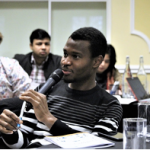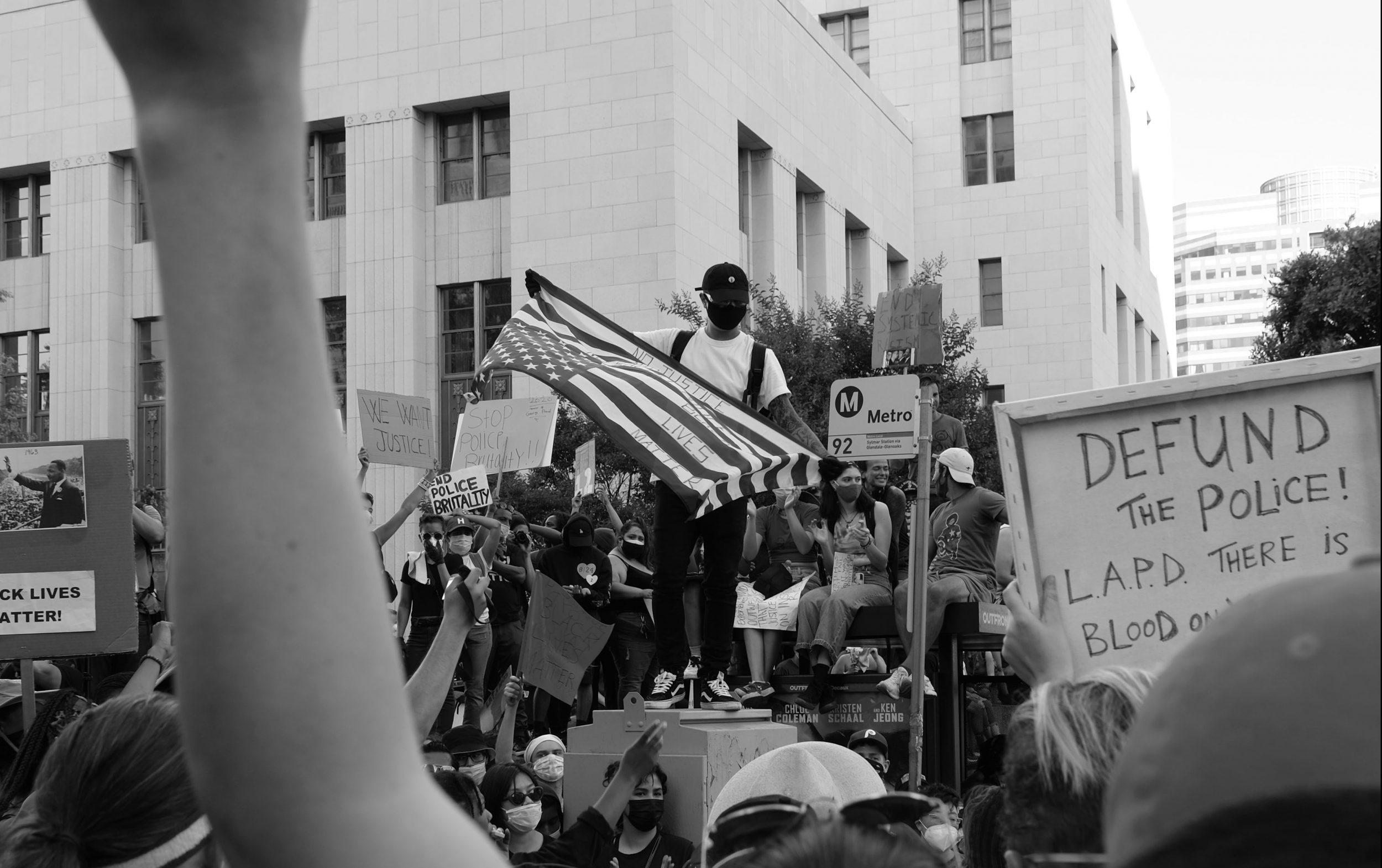 In recent weeks Nigeria has been rocked by a wave of demonstrations as young people take to the streets to protest the activities of a police unit known as SARS. Vincent A. Obia, a PhD researcher at Birmingham City University, looks at the role that Twitter has played in the protests, and the implications for social media regulation.
In recent weeks Nigeria has been rocked by a wave of demonstrations as young people take to the streets to protest the activities of a police unit known as SARS. Vincent A. Obia, a PhD researcher at Birmingham City University, looks at the role that Twitter has played in the protests, and the implications for social media regulation.
Background
The Special Anti-Robbery Squad (SARS) unit of the Nigerian Police Force was created in 1992 to combat violent crimes. Unlike other police officers, SARS operatives were allowed to work in unconventional ways and to be tough in their fight against organised crime. However, allegations of abuse ranging from extortion, kidnapping, rape and extra-judicial killings by SARS operatives have been documented.
 The allegations led to the #EndSARS movement which began on Twitter in 2016 as a protest against police brutality. The most recent round of protests began on 3 October 2020 after a video was shared on Twitter purportedly showing SARS officials killing a man and fleeing with his vehicle in the Delta region, Southern Nigeria. Before long, decentralised and youth-led protests against police brutality spread within and outside Nigeria.
The allegations led to the #EndSARS movement which began on Twitter in 2016 as a protest against police brutality. The most recent round of protests began on 3 October 2020 after a video was shared on Twitter purportedly showing SARS officials killing a man and fleeing with his vehicle in the Delta region, Southern Nigeria. Before long, decentralised and youth-led protests against police brutality spread within and outside Nigeria.
Facing the possibility of sustained national protests, the police chief, Mohammed Adamu, announced the dissolution of SARS on 11 October 2020. The protesters did not back down, however, as they were sceptical of the dissolution given that the SARS unit had been “banned” on four previous occasions. The protests culminated in the Lekki shootings and Nigerian military officers have been accused of firing at unarmed protesters.
How #EndSARS tag was used on Twitter
The way in which #EndSARS was used provides insight into how Twitter serves as a co-ordinating platform for oppositional discourse and activist campaigns in Nigeria. During the protests, Twitter was used in at least three ways: to co-ordinate protests, to amplify the voice of the campaign globally, and to berate brands and public figures deemed to be opposed to the movement.
- In terms of co-ordinating the protests, Twitter was actively used to share information regarding protest venues and to update protesters on breaking news events. Indeed, without a platform like Twitter it would have been difficult, if not impossible, for protesters to spread across the country to co-ordinate themselves in highly organised and effective ways and to feed off one another’s energy.
- Twitter users also sought to amplify conversations around the hashtags #EndSARS, #SARSMustEnd, #EndPoliceBrutality and #EndSARSNow. It was clear that users wanted coverage of the protests by international new outlets and they saw this as a success, celebrating every clip of international media reportage. It seems the agenda was to “get the word out there”, for people to retweet widely, for celebrities and influencers to use the hashtag, and for news on the protests to be widely circulated. This strategy of amplification appears to have been successful. On 9 October 2020, #EndSARS was the top trending hashtag in the world with over 2 million tweets, and it continuously trended in other countries including the United States and the United Kingdom.
- In contrast, protesters called out established brands that were silent on the hashtag. In some instances, banks were berated on Twitter for not tweeting #EndSARS and for not supporting the campaign with funds, something start-ups were said to have done. Also, actress Toyin Abraham was condemned on Twitter for promoting her movie during the protests as users felt she was being “insensitive” and “inconsiderate”. In similar fashion, Twitter users attacked singer Burna Boy for not taking part in the campaign online. The Twitter campaign urged people to unfollow President Muhammadu Buhari on Twitter, leading to him losing 100,000 followers. Some Twitter users went as far as releasing the phone numbers of public figures who opposed the #EndSARS movement, asking that they be bombarded with calls.
#EndSARS and the Nigerian Twittersphere
This phenomenon underlines the way in which Twitter is used differently by Nigerians in comparison to how they use other social media platforms. At the base of this argument is the acknowledgement that Nigerians use Twitter in a particularly activist, aggressive and confrontational way. And there is a recognition of the influence that Twitter has had in Nigeria as “there has been barely any social media platform contesting with Twitter in hosting Nigerian conversations — whether protests, rants or energising social movements”. This concept, broadly known in Nigerian discourses as The Nigerian Twittersphere, has not been covered in academic literature.
Hence, I describe the “Nigerian Twittersphere” as a fluid community of users who assemble around Twitter hashtags to freely and uniquely express their opinions in ways that are nationalistic, political and combative. There are academic explanations as to why this may be: for instance, scholars Alex Bruns and Jean Burgess refer to the use of hashtags in formation of ad-hoc publics on Twitter. Sanjay Sharma also describes the hashtag as a part of the Twitter infrastructure that makes the circulation of viral tags possible.
Similarly, research shows that across the world, Twitter is becoming the focal platform for political discourse as it “can foster a more diverse public discussion than other kinds of social network”. Twitter is also seen as the preferred platform for political debates in Spain. And in places like the US, Twitter has become increasingly vital for politicians and it is serving as a “viable platform to reflect prevailing political sentiments and concerns of people”.
This line of argument, however, does not explain the Nigerian Twittersphere where, as witnessed in the #EndSARS episode, Nigerian social media users, beyond being politically expressive, become far more combative when they use Twitter compared to when they use other platforms like Facebook or Instagram.
Twitter, unlike other platforms, has been “integrated into Nigeria’s political discourse”, and is described as a land whose inhabitants “are not subject to anyone’s control”, having the freedom to denigrate anyone in what is called “dissing”. Its users have been called Nigerian Twitterati and seem to wear a “militaristic garb” when they come on Twitter, and the #EndSARS movement underscores this reality in cases where campaigners have been called “Twitter warriors”. There are also persistent culture wars on, for instance, #JollofDebate between Nigerians and Ghanaians. Speaking to this, Ayomide Tayo says, “We (Nigerians) can abuse our own but you dare not diss us”, adding that “The bottom line is that you don’t want to mess with Nigerians”.
It is this phenomenon that explains the way in which activist tags such as #EndSARS have been deployed on Twitter to curate social movements. It also explains why Twitter has been used to shape other campaigns such as #RevolutionNow, #OpenNASS and #WeAreTired. The situation is no different for Nigerians outside the country. Twitter has been used by those in the diaspora to not only comment on the #EndSARS movement, but also organise protests in cities like London, Berlin and Toronto.
For many, the Nigerian Twittersphere also serves as an alternative space to discuss issues outside a traditional media space that has come under increasing regulatory constraints, especially with regards to broadcasting where hate speech regulations have been introduced. Thus, even though Twitter users number less than half of Facebook users in Nigeria, Twitter has been used in a unique, militaristic and combative way that makes campaigns like #EndSARS more effective than they would normally be.
What this means for social media regulation in Nigeria
There has been a relatively sustained attempt to regulate social media use in Nigeria in ways that mirror top-down control. Examples include a failed experiment in 2015 and the recent 2019 Internet Falsehoods and Manipulations and other Related Matters Bill, popularly called the social media bill. The 2019 bill targets social media users, internet intermediaries and online media outlets.
But with social media and the Nigerian Twittersphere in particular, regulation may not be as straightforward. For instance, there are questions as to how social media posts can be monitored and the scale that this will require. Indeed, there are concerns as to whether this is possible at all. Other questions relate to Nigerians abroad, for many of whom the Nigerian Twittersphere is the major, and in some cases, only avenue to participate actively in Nigerian political discourse.
As a result of the difficulty in regulating social media and the opposition towards it, the 2019 bill is on hold. In the wake of the #EndSARS movement, however, there have been bolder calls for regulation. The chaos and violence that occurred during and after the movement have been blamed on social media misinformation/disinformation. Some have latched onto this to call for the regulation of social media. In his address to the nation, the President condemned the spread of fake news on social media but said nothing about regulation.
However, the Minister of Information, Lai Mohammed, has come out to say that social media must be regulated, describing fake news as “the biggest challenge facing Nigeria today”. He also described the #EndSARS movement as a “war” fought on social media through the use of fake news, adding that a social media policy was needed to make it possible for social media to be shut down at will “when it becomes a menace”.
Overall, the #EndSARS movement has made apparent the power of social media, particularly Twitter, in facilitating the assembly of people around an issue – people who can express themselves on platforms like Twitter largely free from the regulation that has been imposed on the broadcast media in Nigeria. Having been reminded of this, it seems the authorities will now seek ways to intensify the regulation of social media. It is unclear whether the current “social media bill” will be pushed through or whether another policy will be drafted. Whichever is the case, the question that remains is whether the government favours regulation because it is needed to combat online harms in the public interest, or whether government is only trying to extend the control it has over the traditional media to the social media to silence dissent.
This article represents the views of the author, and not the position of the Media@LSE blog, nor of the London School of Economics and Political Science.






Apt. This is thoroughly presented. And the conclusion really expresses the concern of the people.